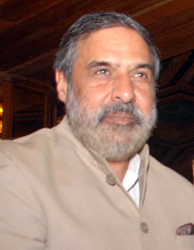
World Trade Organization on Saturday approved a deal called "Bali Package" to liberalize international trade norms that could potentially add nearly $1 trillion to the global economy.
This deal allows developing countries like India to continue offering subsidies for their food procurement program. This is the first successful deal reached by the WTO since it was set up in 1995.
WTO Director General Roberto Azevedo while addressing closing ceremony of the 9th ministerial conference said, "For the first time in our history: the WTO has truly delivered".
"I challenged you all, here in Bali, to show the political will we needed to take us across the finish line. You did that. And I thank you for it," Azevedo said.
Out of 159 member countries most member countries including India had approved the deal on Friday. However, some countries led by Cuba had threatened to block the deal on concerns over trade facilitation agreement.
After long negotiations Cuba and other countries gave its approval to the deal.
Commerce and Industry Minister Anand Sharma, who headed Indian delegation at the conference, said "Bali declaration is a positive step."
"I view this as the victory of the farmers of India, of the farmers who are subsistence farmers, resource poor farmers of the entire developing countries, and there has also been a coalition of developing countries that India was able to put together along with its partners which withstood all pressures, demonstrated solidarity and achieved this," said Sharma.
"Well this is a historic day because the voice of the poor and the developing countries has been heard and with respect. India had persisted throughout the negotiations that the right of countries to public stock holding for food security must be recognized, must be secured," he added.
India will next year fully implement a welfare program to give cheap food to 800 million people and stockpile in the name of food security that, it fears, will contravene WTO rules that limit farm subsidies to 10 percent of production.
The program relies on large-scale stockpiling and procurement at minimum prices and is a central plank of the government's bid to win a third term in office next year.
|
|


Comments: